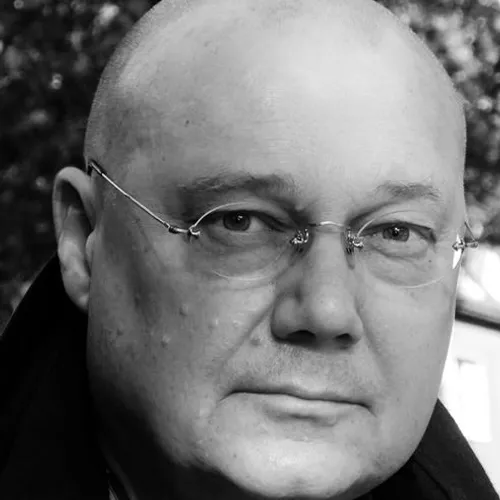
Manfred Trojahn was born in Cremlingen near Braunschweig in 1949. He studied orchestral music in Braunschweig and composition with Diether de la Motte in Hamburg.
With his works he has received numerous scholarships and prizes for his work, including the Study Foundation of the German People (1971), the Stuttgart Award for Young Composers (1972), International Rostrum of Composers, Paris (1978), the Academia Tedesca Villa Massimo in Rome (1979/80), Sprengel Music Prize, Hannover (1980), Deutscher Musikautorenpreis by GEMA (2009).
In 1979-80 Trojahn spent a one-year residence at Villa Massimo, Rome. He was Professor of Composition at the Robert-Schumann-Hochschule in Düsseldorf until 2017 and is a member of the Academies of Fine Arts in Düsseldorf, Hamburg, Berlin and Munich.
He lives in Düsseldorf and Paris.
The work list of Manfred Trojahn includes almost every genre. His works are performed internationally by leading orchestras and composers and renowned soloists.
Since the premiere of “Enrico” at Schwetzingen and Munich 1991 music theatre has occupied an important position in Trojahn’s oeuvre: his operas “Was ihr wollt” [Twelfth Night], (Munich, 1998), “La grande magia” (Dresden 2008) and “Orest” (Amsterdam 2011) have received new productions at many international theatres as well as the new composition of the recitatives of Mozart’s “La clemenza di Tito” was premiered at many theatres.
In recent years Trojahn has intensified composing for ensemble. Since 2012 his cycle “Quitter” appears on texts by René Char for 2 sopranoes, vocal ensembe and 18 instrumenalists, 2017 the 6th movement “Les dentelles de Montmirail” have been premiered by Ensemble Modern at the Festival Acht Brücken in Cologne.
2013 Trojahn has composed “Le Ceneri di Gramsci” on a text by Pier Paolo Pasolini for MusikFabrik, and in 2015/16 the first part of “Nocturne - Minotauromachie”has been premiered by Ensemble Intercontemporain.
In 2017 the melodram “Verpasste Gelegenheiten” (Missed Chances) in cooperation with the poet Michael Krüger has been composed for the Klavier Festival Ruhr as well as the song cycle “Die Sonne sinkt” (The setting sun) for soprano and piano after Friedrich Nietzsche for the song workshop of the festival Kissinger Sommer.
Projects of the season 2017/18 include a new production of “Enrico” at the Frankfurt opera an the revival of the ballet production “une campagne noire de soleil” by Reinhild Hoffmann at the Folkwang Hochschule Essen.
Presently Manfred Trojahn is a Fowler Hamilton Research Fellow at the Christ-Church-College in Oxford.
Editions Bärenreiter
“By all appearances, I am at once in my soul as well as out of my soul, far from the pane of glass and on the brink, the broken windscreen. My desire is unending. I am obsessed with life alone.” The lyrics of René Char (1907-1988), embedded in the history of music, present above all through the works of Pierre Boulez, are also an overall important source of inspiration for composer Manfred Trojahn (* 1949), a true companion of his aesthetic thinking. Trojahn is currently working on the project Quitter for an ensemble of singers, vocalists, and instruments, based on the eight-part Char poem cycle of the same name, published in 1962. Les dentelles de Montmirail, a diverse mountain landscape in the south of France, is the name of the sixth and the longest as well as the most well-known poem.
Trojahn has now added sound to it as his fifth (partial) work: “I think that, here, Char has captured thought as it might come about in someone who, without a goal for their thought in a certain situation of motion, is always processing new impressions, and who, without planning the form, notes the range of their thoughts as a journal might.” Trojahn captures the awareness of the described impressions, findings, and moments on the various distinct, brief islands of sound, which are condensed into a narrow archipelago. The 24 vocal soloists, spread out in groups within the public – “audible mountain peaks” – sing the assigned words primarily homophonically as a chorus, often tending toward a mass of sound. The synchronous instrumental part is oriented in opposite fashion in contrast to this. Naturally not always; that would be too monotonous, would not satisfy the inner richness and the heterogeneity of the poem nor the ars combinatoria of the composer.
Stefan Fricke